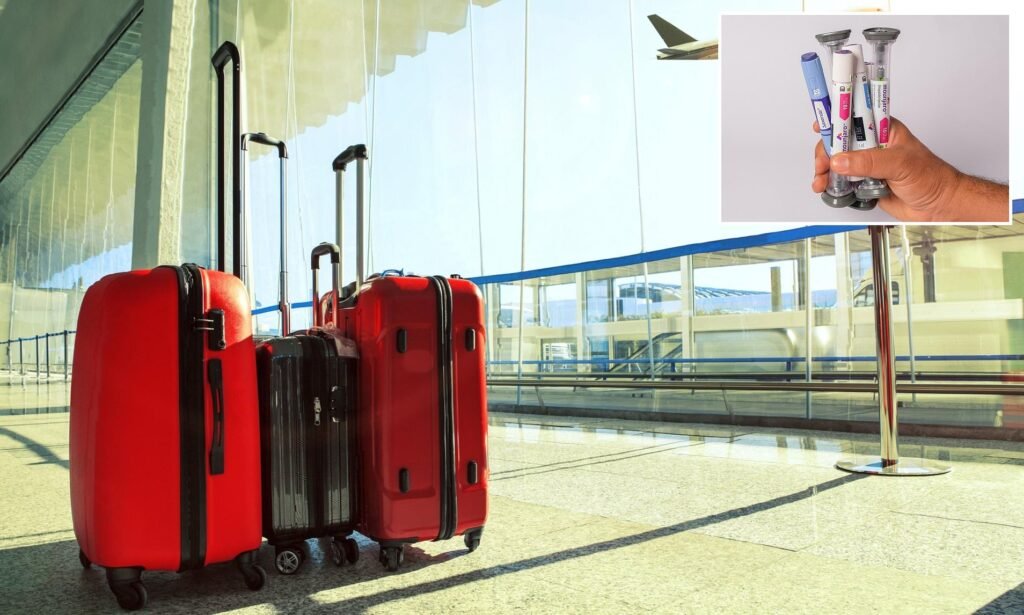Preparing for Travel with Weight-Loss Injections
As more individuals turn to weight-loss injections as a solution for managing their health, it’s becoming increasingly important to consider how these medications will be handled during travel. Whether heading to a tropical island or a European city break, planning ahead is essential to ensure that the medication remains effective and accessible throughout the journey.
Pharmacist Jason Murphy has highlighted several key considerations for those taking weight-loss injections while traveling. One of the most critical points is the storage of these medications. He warns against placing them in hotel mini-fridges, explaining that they are often not medically safe. “The mini bars in rooms are usually only mildly cool, which may not be sufficient for keeping your medication stable,” he said. Instead, he recommends contacting the hotel in advance to request that the medication be stored in a staff fridge, ensuring it remains at the correct temperature.
Murphy emphasizes that travelers should not simply toss their medication into a suitcase and hope for the best. There are several intricacies involved, such as understanding the required storage conditions and being aware of customs regulations. “Travelling with weight-loss medication isn’t impossible, but it does require some careful planning,” he explained. “Between time zone changes, storage issues, and customs restrictions, it’s more of a ‘carry-on mission’ than most people realize.”
Weight-loss injections typically need to be kept refrigerated between 2°C and 8°C before use. However, some medications, like Wegovy and Mounjaro, can be stored at room temperature for a limited time—below 30°C. This flexibility offers some relief for travelers, but it’s still crucial to keep the pens away from direct sunlight and excessive heat. “I always recommend using a medical-grade travel cool bag with ice packs, especially if you’re flying to a hot destination,” Murphy added.
Another important consideration is the risk of losing medication when packing in checked baggage. “Never pack injections in checked luggage,” Murphy advised. “Luggage holds aren’t temperature-controlled, and there’s a risk of delays or loss.” Instead, he suggests carrying the medication in hand luggage, in its original packaging, along with a copy of the prescription or a signed letter from the prescriber or pharmacist.
Customs rules also play a significant role in determining what medications can be brought into different countries. “Some countries, such as Japan, the UAE, and Singapore, have strict regulations about what medication crosses their borders,” Murphy noted. “In some cases, your jab may be considered a controlled substance, so it’s essential to check embassy rules before you fly to avoid any holiday complications.”
Time zones can also affect the administration of weight-loss injections. “If you’re hopping between multiple time zones, your injection routine may need adjustment,” Murphy explained. “Weight-loss injections are typically once weekly, but timing still matters.” He suggested setting an alarm based on the original UK schedule and gradually shifting it to local time over a few days. “This helps you stay in sync and avoid what we call ‘jet-lagged jabs.'”
By following these recommendations, travelers can ensure that their weight-loss injections remain effective and accessible throughout their trip, allowing them to focus on enjoying their vacation without unnecessary stress.

